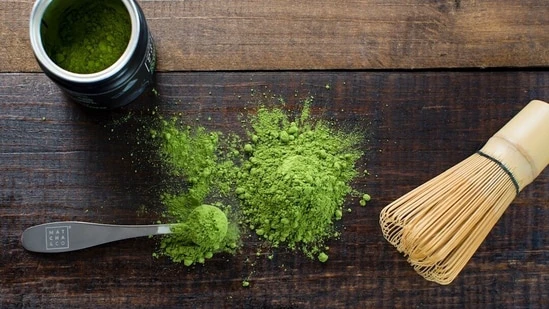In recent years, matcha has become a go-to beverage for those seeking a healthy alternative to coffee, praised for its antioxidants and calming, sustained energy.
Yet as more people adopt it into their daily routine, many are asking key questions: How much caffeine does matcha actually contain? How does it compare to coffee? And which provides a better, steadier energy lift?
Dr Kunal Sood, an anesthesiologist and pain medicine expert, has revealed the truth about the caffeine concentration of matcha as compared to coffee, and how to enjoy it safely. In an Instagram video posted on October 7, the doctor highlights the nutritional benefits of matcha, explaining that its caffeine content varies depending on preparation. He also cautions about its tannin content, which can interfere with iron absorption, and offers tips to minimise this effect.
What is matcha?
Matcha has recently gained immense popularity among health enthusiasts for its soft pastel colour, earthy flavour, and steady energy boost. According to Dr Sood, “Matcha is a finely ground green tea powder, packed with antioxidants, amino acids, and natural compounds. It helps boost focus, supports heart health, and provides steady energy without the jitters that some people experience with coffee.” Unlike coffee, which often causes an abrupt spike and crash in energy, matcha provides a smoother, more sustained form of alertness.
Caffeine content: Matcha vs coffee
Dr Sood points out that, in terms of caffeine concentration, matcha contains more caffeine per gram than both regular green tea and even coffee beans. However, the actual caffeine concentration depends on serving size and preparation. The doctor explains, “A standard 2 ounce serving of matcha contains 38 to 88 milligrams of caffeine, while an 8 ounce cup of coffee has about 96 milligrams. While coffee has more caffeine per serving, matcha is more concentrated.” Therefore, if you were to consume an amount equivalent to a full cup of coffee, matcha could potentially deliver even more caffeine – however, the exact content depends on how much powder is used during preparation.
Potential risk
While matcha offers numerous health benefits, Dr Sood notes that it also contains tannins – compounds that can interfere with the body’s ability to absorb iron. He advises, “Drinking matcha right after an iron rich meal may lower iron absorption, so it’s best to wait at least an hour before having it.”
